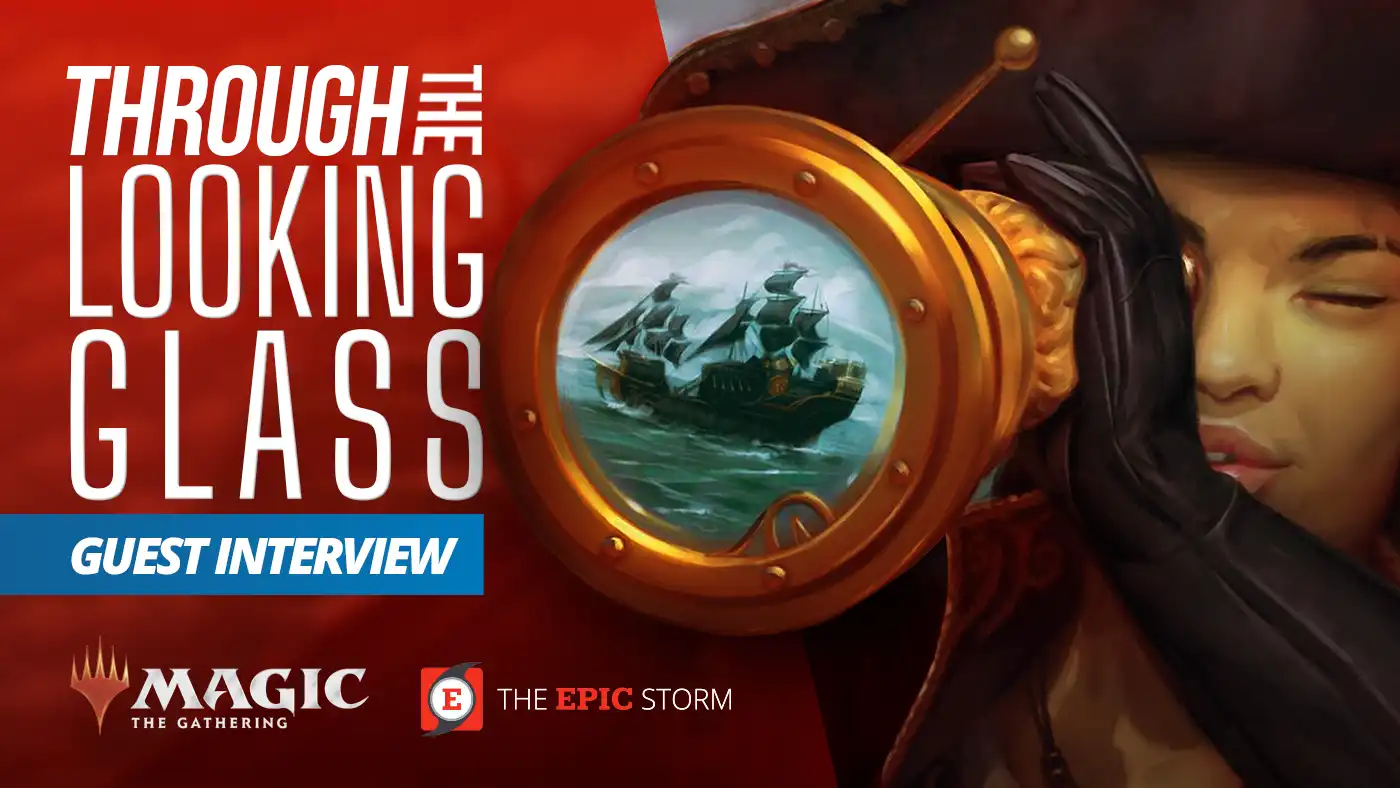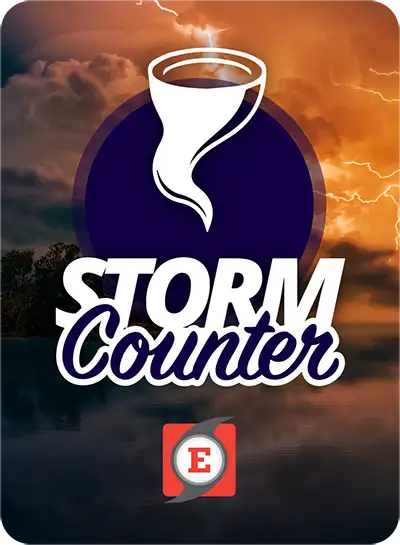
Special Guest
A few words on Andrew Ahern:
Andrew Ahern is a NYC-metro area local who has been playing Legacy since 2018. An avid deckbuilder (his first Legacy deck was a [[Worldgorger Dragon]] homebrew), Andrew has become locally famous his pile of Gruul cards that (until recently) haven’t been available on MTGO. That pile has come to be known affectionately as “Gruul Initiative”. You can catch Andrew piloting his deck at Gamestoria’s monthly Legacy 1Ks in Queens, New York, or stomping his opponents on the 90sMTG youtube channel.
I view The EPIC Storm as being generally favored in this matchup. During game one, Gruul needs to land a lock piece (often [[Chalice of the Void]]) first, then follow that up with threats. The EPIC Storm pilot doesn’t have a lot of time to set up in this matchup, but shouldn’t need it. Almost all the disruption out of Gruul is played to the board (in current lists). Post-board, the goal is largely the same, except Gruul will likely have access to additional lock pieces.
Gruul Initiative is a fairly linear deck – you’re almost always going to win the game with [[Caves of Chaos Adventurer]], [[Undermountain Adventurer]], or [[Minsc & Boo, Timeless Heroes]], potentially with one or more pieces of disruption to slow down your opponent. There is some nuance (particularly whether you should go for a threat or a piece of disruption first), but the deck is generally pretty straightforward.
The primary maindeck prison pieces to expect out of Gruul Initiative are [[Magus of the Moon]] and [[Chalice of the Void]]. [[Trinisphere]] is popular as either a maindeck or sideboard hate piece as well. In post-board games, expect [[Force of Vigor]] and [[Collector Ouphe]] ( as well as [[Trinisphere]] if they’re not maindeck). Some pilots might side in [[Pyroblast]] as well.
While an “optimal” build is still very much in flux, the current trend is eight Initiative creatures (four [[Caves of Chaos Adventurer]] and four [[Undermountain Adventurer]]), 3-4 additional threats between [[Minsc & Boo, Timeless Heroes]] and [[Fable of the Mirror Breaker]] and four primary lock pieces (typically [[Chalice of the Void]] maindeck, but potentially [[Trinisphere]] instead). 2-4 slots will flex between an additional lock piece in [[Magus of the Moon]] or an additional threat & removal spell in [[Fury]] depending on your meta. Finally, the deck generally plays 19-20 sources of mana acceleration – the eight Spirit Guides (four [[Simian Spirit Guide]] and four [[Elvish Spirit Guide]]), 3-4 artifact based accelerants (either [[Lotus Petal]] or [[Chrome Mox]]), and the eight Sol lands (four [[Ancient Tomb]] and four [[City of Traitors]]).
Something I love about the deck is that there’s still a lot to try out. Crucible of Words put together a version with [[Natural Order]] that looks promising, and I personally have tried out everything from [[Crop Rotation]] for [[Maze of Ith]] to [[Violent Outburst]] into [[Crashing Footfalls]] at my locals.
[[Trinisphere]] really slows down a lot of decks right in this metagame, but unlike [[Chalice of the Void]] on one, I need more than just a sol land to get it down on turn one – this complicates mulligan decisions. My experience is that [[Trinisphere]] is a better main-deck fit in Stompy shells than in true Initiative lists. I’d keep the [[Trinisphere]] in the board, personally.
Typically the lands my opponent’s playing are my best bet – [[Badlands]] and [[Underground Sea]] are a good sign that something unfair is about to happen.
[[Force of Vigor]] is the only non-lock piece to worry about – we don’t play [[Mindbreak Trap]]. Waiting might get you killed or open up an opportunity for your Gruul opponent to resolve a lock piece – I’d always go for it if I had the opportunity.
While I do have [[Fury]] to take out some [[Goblin Token]]s pre-board, these will often come out after sideboarding. Chances are, I’m not beating a critical mass of [[Goblin Token]]s coming down turn one, so yes, any Storm spell is a concern.
It feels like I’m tweaking my own list basically every day! [[Collector Ouphe]] is definitely the most common sideboard hate piece for artifact-heavy combo decks like TES. In my current list, I side in two [[Collector Ouphe]], three [[The Stone Brain]] and two [[Engineered Explosives]] and take out four [[Fury]] and three [[Undermountain Adventurer]].
Simply put, if you’re on the play and you have a line to win the game, go for it. On the draw, I would try to find a hand with [[Abrupt Decay]] or [[Prismatic Ending]]. It’s unlikely that I’ll keep a hand post-board that just puts a threat into play turn one and passes the turn.
Play or draw, I mulligan to a lock piece of some kind. TES can win much faster than Gruul can (particularly when they know they don’t have to play around [[Force of Will]]), so my best bet is locking you out of the game as quickly as possible.
[[Pyroblast]] is a card we primarily run to hit more common problem blue cards, such as [[Murktide Regent]] out of UR Delver, or [[Thassa’s Oracle]] out of Cephalid Breakfast or [[Doomsday]]. I could be wrong, but I wouldn’t bring it in against TES. The most common graveyard hate you’ll run into includes [[Endurance]], [[Faerie Macabre]] and [[Unlicensed Hearse]], but nothing that does a ton against [[Echo of Eons]]. [[Leyline of the Void]] isn’t a card Gruul typically runs.
It really depends on how you’ve built your sideboard. While ANT and TES are pretty difficult matchups (especially on the draw), we get enough graveyard hate post-board to actually interact with Oops! All Spells. [[Doomsday]] feels like a nightmare matchup – they get a fast combo kill backed up by [[Force of Will]] and [[Daze]] for our lock pieces and early threats.
Gruul is definitely not as oppressive as white Initiative was (I’m not even sure it’s better than Boros Initiative right now, frankly), but it’s still a very new deck with plenty of room to brew. I want to shout out Kevin An for getting me into Legacy and running the best game store in New York, Gamestoria! Chris Banuchi for capturing the magic. Phil Blechman for actually critiquing the bad brews I bring to him. And the rest of the Gamestoria crew, you know who you are…
I want to take a moment to thank Andrew Ahern for joining Through the Looking Glass and for walking us through the Gruul Initiative match-up!
Until next time – keep counting to ten!










